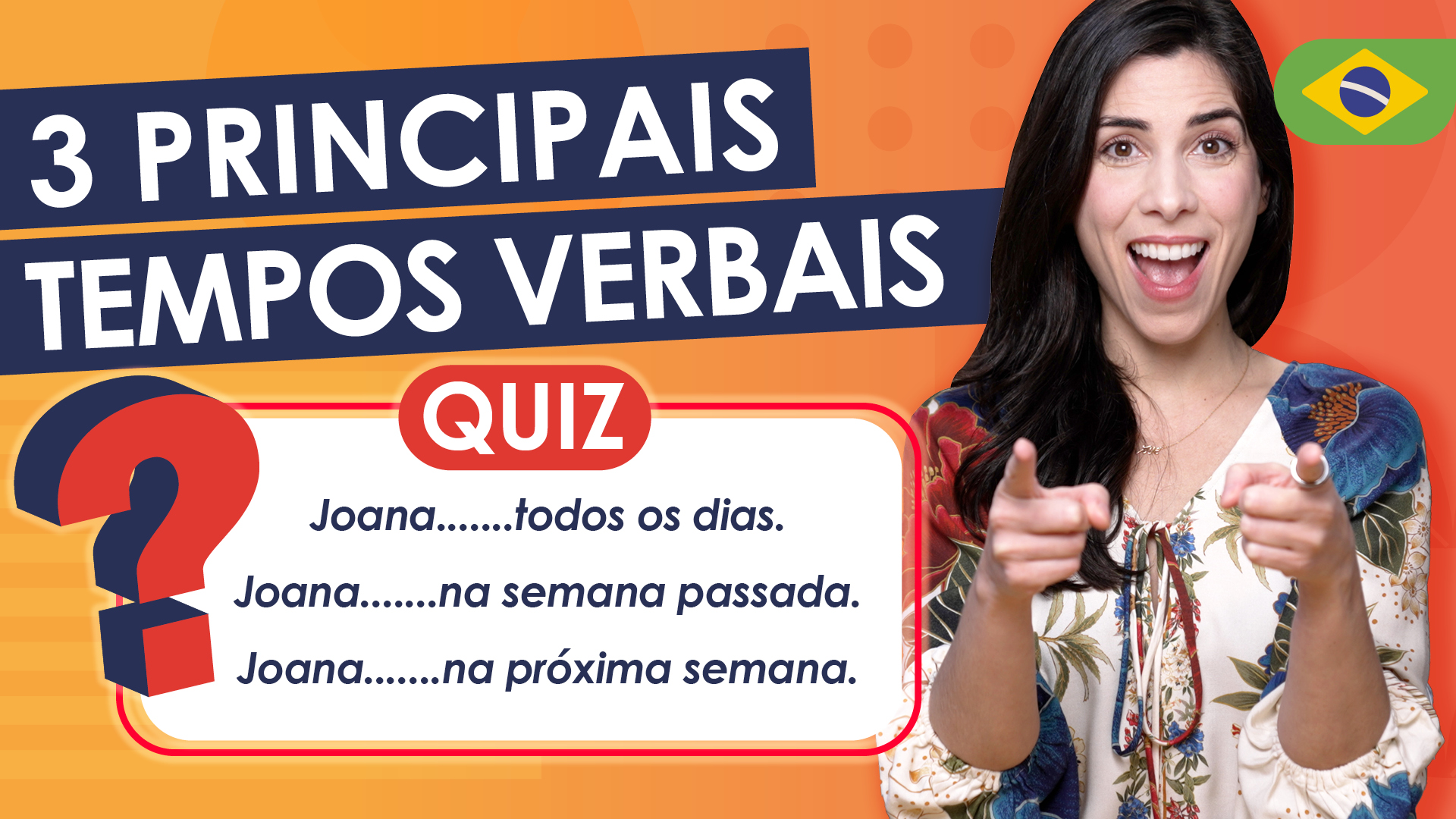*Read translation into English at the end 🙂
Transcription of the video:
MUITO, MUITOS, MUITA OU MUITAS?
Oi pessoal! Aqui é a Virginia.
Meus alunos me perguntam o tempo todo como usar a palavra “muito”. Por que dizemos “muito obrigada” e não “muita obrigada”? Nesta lição, você vai aprender definitivamente como usar a palavra “muito”.
Se você é novo no meu canal, eu gostaria que você soubesse que eu ofereço um minicurso de pronúncia gratuito que já ajudou milhares de pessoas em todo o mundo a melhorar sua pronúncia no português brasileiro.
Para se inscrever, visite o meu site: www.speakingbrazilian.com.
Se você gosta dos meus vídeos, não esqueça de se inscrever em meu canal para receber notificações sempre que eu publicar um novo vídeo.
Agora, vamos começar a nossa lição.
A palavra MUITO tem dois usos principais em português: pode ser usada para indicar intensidade ou quantidade.
MUITO = VERY (INTENSIDADE)
Quando usamos a palavra “muito” para indicar intensidade, ela é invariável, ou seja, não varia em gênero ou número.
Neste caso, a palavra “muito” é equivalente à palavra “very”, em inglês.
Por exemplo:
A menina é muito bonita.
O menino é muito bonito.
As meninas são muito bonitas.
Os meninos são muito bonitos.
Veja que a palavra “muito” permanece a mesma em todas os exemplos.
MUITO = A LOT (ADVÉRBIO DE INTENSIDADE)
Veja mais alguns exemplos:
Eu gosto muito de viajar.
João comeu muito.
Maria dormiu muito.
Nesses 3 últimos exemplos, a palavra “muito” refere-se ao verbo, portanto funciona como advérbio de intensidade, invariável.
gosto muito / comeu muito / dormiu muito
Então, para responder à pergunta que eu fiz no começo do vídeo: devemos dizer “muito obrigada” ou “muita obrigada”? O correto é “muito obrigada” (se você for mulher) ou “muito obrigado” (se você for homem). A palavra “muito” não deve variar, pois está indicando intensidade.
MUITO = MANY / A LOT OF (QUANTIDADE)
Quando usamos a palavra “muito” para indicar quantidade, ela é uma palavra variável, ou seja, varia em gênero e número. Neste caso, a palavra “muito” é equivalente à palavra “many” ou “a lot of”, em inglês. A palavra “muito” indica uma quantidade que não é precisa ou exata.
Por exemplo:
João comeu muita pizza.
Maria comeu muito chocolate.
Tem muitas pessoas na rua.
Tem muitos carros na rua.
Veja que, neste caso, a palavra “muito” varia, concordando com a palavra seguinte:
– muita pizza / muito chocolate / muitas pessoas / muitos carros.
Então, para resumir: se você estiver falando de intensidade, a palavra “muito” não varia – sempre “muito”; se você estiver falando de quantidade, a palavra “muito” varia em gênero e número para concordar com a palavra seguinte.
PRONÚNCIA DA PALAVRA “MUITO”
Agora, eu gostaria de falar sobre mais um pequeno detalhe: a pronúncia da palavra “muito”. É uma pronúncia nasal. As vogais “ui” são um ditongo nasal.
É interessante, porque normalmente as vogais nasais são acentuadas com til (˜) ou seguidas pelas letras N ou M, mas nesse caso, não. “Muito” tem uma pronúncia nasal, “MUINTO”, mas não devemos escrever desta maneira. A forma correta de escrever é MUITO, apesar de ter uma pronúncia nasal.
É isso, gente! Agora você já sabe como usar e pronunciar a palavra “muito”.
Agora é hora do dever de casa!
Deixe um comentário abaixo usando a palavra “muito”.
E se você gostou MUITO deste vídeo, lembre-se de dar um like e de se inscrever em meu canal! Todas as semanas, eu posto um novo vídeo com dicas de gramática, expressões e pronúncia do português brasileiro.
Até a próxima! Tchau, tchau!
MUITO, MUITOS, MUITA OR MUITAS?
Hi everyone, Virginia here.
My students ask me all the time how to use the word “muito”. Why do we say “muito obrigada” and not “muita obrigada”? In this lesson, you’ll learn definitively how to use the word “muito”.
If you are new to my channel, I’d like you to know that I offer a free mini-course in pronunciation that has helped thousands of people around the world to improve their pronunciation in Brazilian Portuguese.
To sign up, visit my website: www.speakingbrazilian.com.
If you like my videos, don’t forget to subscribe to my channel to receive notifications whenever I publish a new video.
Now, let’s begin our lesson.
The word MUITO has two main uses in Portuguese: it can be used to indicate intensity or quantity.
MUITO = VERY (INTENSITY)
When we use the word “muito” to indicate intensity, it is invariable, that is, it doesn’t vary in gender or number.
In this case, the word “muito” is equivalent to the word “very” in English.
For example:
A menina é muito bonita. (The girl is very beautiful.)
O menino é muito bonito. (The boy is very handsome.)
As meninas são muito bonitas. (The girls are very beautiful.)
Os meninos são muito bonitos. (The boys are very handsome.)
Note that the word “muito” remains the same in all examples.
MUITO = A LOT (ADVERB OF INTENSITY)
Let’s see some more examples:
Eu gosto muito de viajar. (I really like to travel.)
João comeu muito. (João ate a lot.)
Maria dormiu muito. (Maria slept a lot.)
In these last 3 examples, the word “muito” is referring to the verb, so it works as an adverb of intensity, invariable.
gosto muito / comeu muito / dormiu muito (I like it a lot / he ate a lot / she slept a lot)
So, to answer the question I asked at the beginning of the video: should we say “muito obrigada” or “muita obrigada”? The correct way is “muito obrigada” (if you are a woman) or “muito obrigado” (if you are a man). The word “muito” should not vary, as it’s indicating intensity.
MUITO = MANY / A LOT OF (QUANTITY)
When we use the word “muito” to indicate quantity, it’s a variable word, that is, it varies in gender and number. In this case, the word “muito” is equivalent to the word “many” or “a lot of”, in English. The word “muito” indicates an amount that is not accurate or precise.
For example:
João comeu muita pizza. (João ate a lot of pizza.)
Maria comeu muito chocolate. (Maria ate a lot of chocolate.)
Tem muitas pessoas na rua. (There are many people on the street.)
Tem muitos carros na rua. (There are many cars on the street.)
Note that, in this case, the word “muito” varies, agreeing with the word that follows it:
– muita pizza / muito chocolate / muitas pessoas / muitos carros (a lot of pizza / a lot of chocolate / many people / many cars)
So, to summarize: if you are talking about intensity, the word “muito” does not vary – it is always “muito”; if you’re talking about quantity, the word “muito” varies in gender and number to agree with the word that follows it.
PRONUNCIATION OF THE WORD “MUITO”
Now, I’d like to talk about one more little detail: the pronunciation of the word “muito”. It’s a nasal pronunciation. The vowels “ui” are a nasal diphthong.
It’s interesting, because nasal vowels are usually marked with tilde (˜) or followed by the letters N or M, but in this case, they are not. “Muito” has a nasal pronunciation, “MUINTO”, but we shouldn’t write it that way. The correct way to write it is MUITO, despite having a nasal pronunciation.
That’s it, guys! Now you already know how to use and pronounce the word “muito”.
Now it’s homework time!
! Leave a comment below using the word “muito”.
If you liked this video A LOT, remember to give it a thumbs up and subscribe to my channel. Every week, I post a new video with tips on grammar, expressions and pronunciation of Brazilian Portuguese.
See you next time! Bye-bye!


